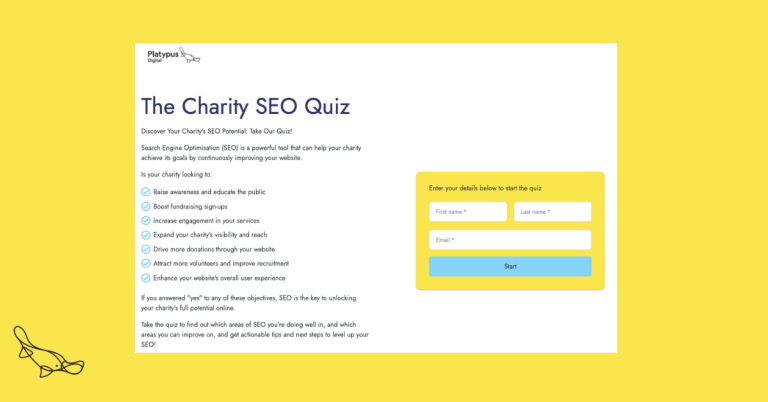What are the changes?
Facebook / Meta (that’s really not sticking as a new name, is it?) is removing some of its ad targeting options.
This will limit how organisations (including charities) can plan campaigns that reach people based on their engagement in “sensitive” areas including race or ethnicity, religious views, political beliefs, sexual orientation and health.
Facebook hasn’t published a full list of what it means by political/social issues. So the full extent of the changes isn’t clear yet.
Audience targeting changes have been happening for a long time – see the huge IOS14 changes.
Facebook also came under a lot of pressure in the Stop Hate for Profit campaign. So in that context, this change isn’t a huge surprise.
It does mean certain ways to use Facebook Ads that were a good idea before might become vital. More on that below.

What does this change mean?
It means you won’t be able to target ads to people based on those sensitive characteristics.
So you’ll have to rely more on other ad targeting options, such as retargeting, or use other proxy targeting options if you still want to reach those groups.
Who does it affect?
It affects any organisation using Facebook Ads to target people based on those interests.
Charities that do a lot of political style campaigning will also be harder hit, as they can’t reach people most interested in helping them.
Also, charities that target religious audiences will find it harder to do that.
The biggest impact will be for charities that don’t already keep Facebook Pixel or other data to create lookalikes. Targeting like that will help fill the gap that these changes will create.
It might not have been the intention but this could clearly negatively impact the people Facebook thinks it’s trying to protect. Charities working on positive change with those groups will naturally want to reach them to grow their supporter base. If they can’t target them, that limits how much impact they can have.
What should my charity do?
Until the audiences are actually removed in January 2022, you won’t know how the changes will affect your particular charity with its particular audience and particular targeting preferences.
Here’s what you can get started on now.
- Review your audiences
Now is a good time to go through the audiences you’ve been targeting, and see how much overlap there is with the audiences Facebook says it will remove.
That’ll tell you how many changes you’ll have to make. Maybe none!
2. Sort your privacy policy out
If your charity hasn’t already got a privacy policy that allows the reasonable sharing of user data with Facebook to create retargeting and lookalike audiences, get cracking on that now.
Of course, do this step reasonably and in consultation with your usual data experts.
3. Plan some engagement campaigns
Don’t just run conversion campaigns that ask people for money or to sign up for events. Run middle of funnel acquisition lead generation campaigns that really engage high value, loyal supporters.
See some great examples of middle of funnel campaigns here.
This will help to build larger, stronger banks of engaged supporters ready to take action. It will also build a data pool that you can use to find lookalikes to replace any options you end up losing.
4. Stay up to date
This is just a heads up from Facebook. We’ll update this blog post when the changes land so you can see what impact this will actually have on your charity.
Facebook has been continually reviewing and removing targeting, so expect updates to carry on. Sign up to our emails to find out about all the updates as they happen.





